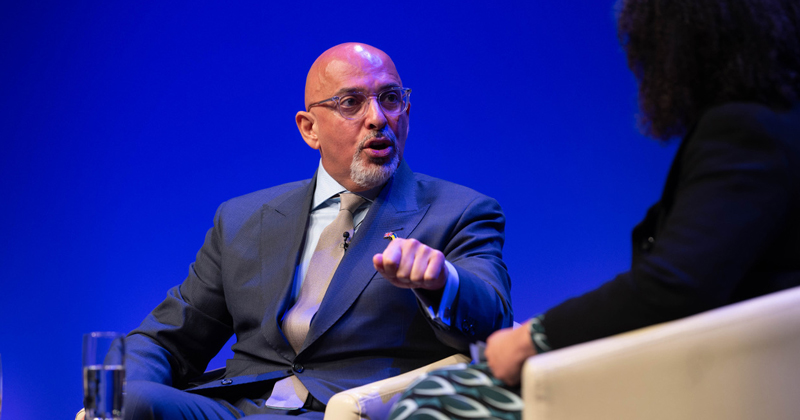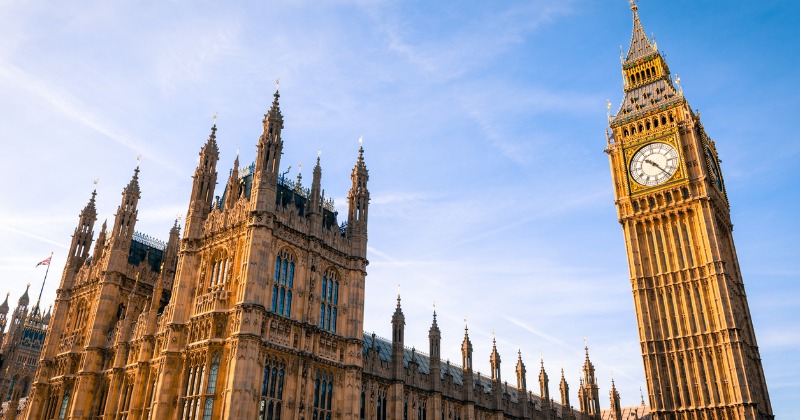There was always going to be a heated discussion about how we pave the way for all schools to join strong multi academy trusts through the schools bill.
The question at the heart of all this is how to best make sure every child gets the education they deserve and fulfils their potential. If nobody cared, we’d be in a sorry place.
My approach, and this government’s ambitions, remain as true today as they were in May when we introduced the bill, and in March when we launched the schools white paper. Without them, we cannot meet our goal of every child achieving their potential.
We want all schools to be in strong multi academy trusts because they bring benefits to their schools, in terms of educational outcomes for all children including the most disadvantaged, and in creating opportunities and building resilience for school staff.
I recently heard about the Ted Wragg Trust – founded with the explicit aim of fostering collaboration between its local schools to drive improvement.
It now works with schools across some of the most deprived areas in the south west, taking on nine schools in as many years.
One of its schools, Marine Academy Primary, has just received its second consecutive outstanding Ofsted grade. This is testament to the trust’s work with its schools to ‘deeply understand’ their communities.
‘We need regulation that works for trusts’
What we need is a regulatory framework that works for a multi academy trust led system – supporting trusts like Ted Wragg and many others in their excellent work driving up school standards.
As the secretary of state said recently, “the current system is in many ways held together by rubber bands”.
The current rules depend on the model funding agreement in place at the point of each trust’s foundation. This isn’t sustainable.
But I hear the concerns about how the schools bill, as drafted, implements this change.
I am clear that we will protect the fundamental freedoms academies enjoy and which allow them to transform outcomes for children. I do not want to micro-manage academies in areas such as suitability of staff or spending.
We want to bring clarity about what constitutes a strong trust, so that we can use this in a transparent and trusted way when ensuring schools end up in the right trust for them.
And we must also introduce new legal intervention powers in relation to trusts themselves, rather than just their academies, to establish proportionate enforceability for the department in the very rare cases that issues do occur at trust level.
Any argument that this is a disproportionate aim is wrong. Even if it is less than one per cent of trusts, in a fully trust-led system that is many tens of thousands of students affected.
‘We will support removal of schools bill clauses’
The government will support amendments to temporarily remove some clauses from the bill, while I continue to engage the sector on implementation through the regulatory and commissioning review.
I have said since taking on this role that I want to listen. The secretary of state is of the same mind. So it’s absolutely right that we now do that and consider those concerns.
The revised clauses will be reintroduced when the bill reaches the commons to meet our end goal – moving to a common rulebook for all academy trusts, ensuring that the same set of minimum standards can be applied consistently to all.

Through the review we will set out the principles we will follow when setting standards and will be clear about the scope of our intervention powers.
Making this transition is hugely important. It will provide more transparency and confidence in the system for parents and a more level playing field for multi academy trusts.
I want to move quickly to deliver on these hugely important ambitions. The review will therefore run in parallel with our work with the sector and parliamentarians on the bill.
‘Review will help academy trusts improve schools’
The review will also consider how we create the conditions in which multi academy trusts are best able to improve schools.
We will look at how the government can build motivation for the leaders of trusts and schools to continuously improve their practice and deliver better outcomes for children.
This will help drive quality across the school system and shape the future for the vast majority of trusts that are already delivering for young people.
There will be no changes from the current trust standards, bar those we have already set out in the white paper, or where they are directly informed by the outcome of the review.
I want and need the review to command your confidence, which is why you will see a wide range of experts on the advisory group, and why I have committed to continuing to engage on its outcomes.
We will also make sure to engage with sector representatives from every region of the country, representative bodies including leadership unions, and parliamentarians who have significant expertise in these matters.
We are on the right path to strengthening the school system so that by 2030, where a child grows up and which school they go to is not a factor in their chances for success in life.
My door is always open to the sector, schools and families. I always want to talk to those who feel they have new evidence, a new piece of the puzzle to fill in, or something to add to the conversation.
Please keep talking to me. I’ll keep listening to you, and we’ll deliver together for every child.
















It is all very well saying you want to listen but when she doesn’t even see the letters we take time and considered thought to write, how is she “listening” to anyone other than the self-proclaimed “experts”. The problem with the “experts” is that they love systems and processes, checks and balances but forget the individuality of each child. The theory behind this sounds good but the reality is not matching up. As a parent I’ve discovered each of my children are different and the “one size fits all” approach of these large MATs doesn’t work for them. Also I’ve spoken to many friends with children who need SEN and these large corporate style MATs are failing them completely. The White Paper specifically says they want to engage parents and communities but the reality experienced by RBKC and Holland Park School parents is the exact opposite. They have completely ignored us, as they “know best” apparently eventhough they don’t know our community at all.